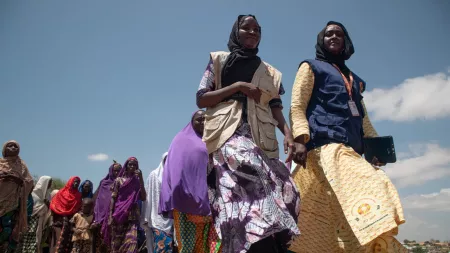Even as women are disproportionately impacted by crises, they continue to be central in leading efforts for sustainable solutions to their compounding effects. In the lead up to World Humanitarian Day on August 19th, we are shining light on the role of women in humanitarian crises around the globe.
Through their work at CARE, our partner organizations, and communities around the world, womanitarians are empowering women everywhere and amplifying their voices in the fight for a world of hope, inclusion, and social justice.
These are their amazing journeys!
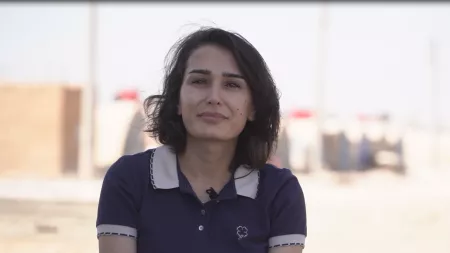
Sara*: “Syrian women and girls have kept our hearts and souls”
Sara* is CARE Syria’s Deputy Rapid Response Manager. She coordinates the support to thousands of people deeply affected by the 12-year conflict in Syria, from providing essential food items to assisting gender-based violence survivors. Sara* highlighted some of the compounding challenges faced by women working in the complex scenario of an active conflict zone with restrictive cultural norms. As a Syrian national herself, she also shared what she wishes for the future of all women and girls in the country.
*Name changed to protect identity
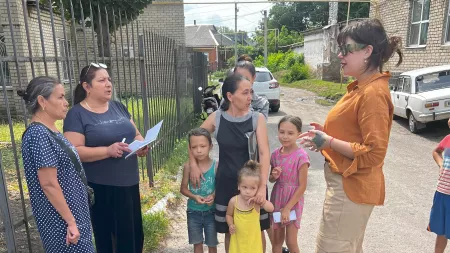
Yulia Hladka: “May love, tolerance, and understanding unite our world”
Yulia Hladka is a part of Winds of Change, a women-led NGO based in Odessa, Ukraine, which works with CARE to promote women’s participation in the response to the current humanitarian crisis. She shared the deep impacts that the escalation of the conflict has had on their work and how they plan to continue supporting women in a context of growing needs.
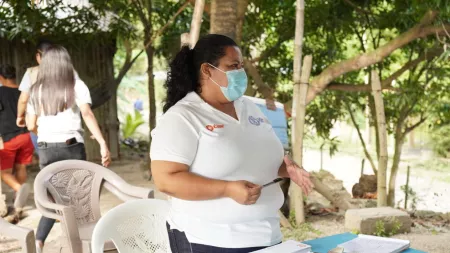
Erika Murillo: “Being a humanitarian worker means being ‘an opportunity’”
After witnessing firsthand the disproportional impacts of crises on women and girls, especially on their safety, Erika Murillo decided to dedicate her life to help improving gender equality in Honduran communities. At CARE, she supports survivors of gender-based violence (GBV) to find safe shelter, access healthcare and engage in livelihood opportunities. She shared with us how ‘opportunity’ is the keyword in her efforts – for her and the women she supports.
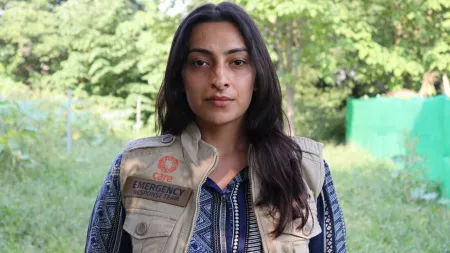
Maryam Imtiaz: “I want women to be able to fully use their voices”
Maryam Imtiaz is a Communications Assistant at CARE Pakistan. In 2022, she worked closely in the response to the floods that left nearly one-third of the country underwater and impacted over 30 million people. She shared with us the challenges, rewards, and inspirations of her work and what she wishes for women and girls in Pakistan.
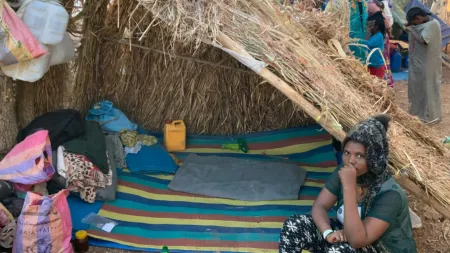
Abeba Hailesilassie: “Stand on the side of Tigrayan women”
The 3-year conflict between the central government of Ethiopia and the Tigray People’s Liberation Front caused a huge impact on women and girls in northern Ethiopia. As well as largescale displacement and insecurity, reports of gender-based violence (GBV) - including conflict-related sexual violence - have skyrocketed. In her work at the Women’s Association of Tigray (WAT), a CARE partner NGO, Abeba Hailesilassie helps to support survivors of GBV and promotes women’s leadership in decision-making.
